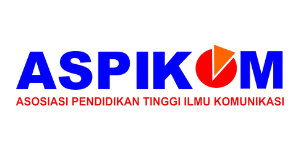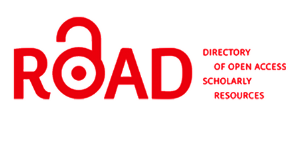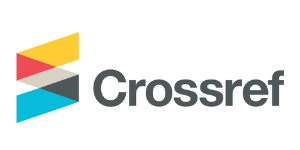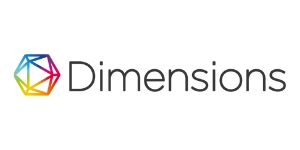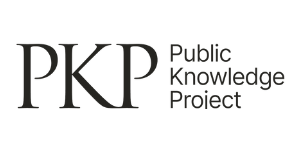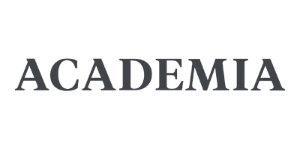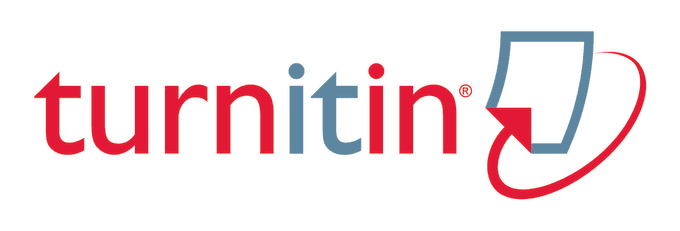Public Relations Discourse on X (Twitter) and Analysis of Public Relations
DOI:
https://doi.org/10.37535/105003120242Keywords:
Public Relations, Social Media, X (Twitter), RepresentationAbstract
In the twenty-first century, public relations gained a new form along with digital media, as well as having a wider area of dialogue. Especially social media offers new opportunities for the development of public relations strategies that focus on building and developing relationships with sharers. While creating dialogical, interactive and relationship development-oriented strategies with social media as a part of public relations, it is also thought to contribute to the development of theory and practice. As previous studies have focused on how web-based communication is used for public relations purposes, this study aims to reveal what is published about public relations on X (Twitter) and how the features of the platform can contribute to public relations practices. In order to examine how public relations discourse is represented on social media, the contents obtained by using the hashtags #halklailiskiler and # publicrelations on X (Twitter) were analyzed. Using content analysis, an exploratory research focused on the type of messages shared and the themes that emerged about public relations were evaluated qualitatively. As a result of the research, the possibilities of acquiring, developing and distributing information in the field of public relations and the ability to strengthen the public relations strategy of social media are emphasized. Since the study covers a two-month period and is researched through a single medium, it has been interpreted with limited data.
References
Algül, A., D., E. (2020). Tweet zincirinde dijital halkla ilişkiler: Spor klüpleri örneğinde. Turkish Online Journal of Design Art and Communication, 10(4), 321-338.
Arslan, S. (2017). Kamu kurum ve kuruluşlarının halkla ilişkiler faaliyelerinde websitesi ve twItter kullanımları: KKTC cumhurbaşkanlığı örneği. 364-378. DOI:10.21733/ibad.370200
Baytimur, Tuğba. & Çalışkan, S. (2018). Yükseköğretim kurumlarında dijital halkla ilişkiler: İstanbul Üniversitesi ve İstanbul Aydın Üniversitesi Twitter Kullanımı Karşılaştırması. (Ed. Gülbuğ,Erol. ve Topbaş, Hasan.) Dijital Çağda İletişim Okumaları-1. Hiperlink. ss.168-191.
Bilgin, N. (2014). Sosyal Bilimlerde İçerik Analizi Teknik ve Örnek Çalışmalar. Siyasal Kitabevi.
Dietrich, G. (2016). Dürüstlük çağı: Dijital dünyada iletişim & İtibar yönetimi. The Kitap.
Dursun, C., T., E. (2021). Dijital halkla ilişkiler uygulamalarının otomotiv sektöründe kullanımı: Renault ve Fıat’ın Facebook ve Twitter paylaşımlarının incelenmesi. 9(2), 662-692. https://doi.org/10.19145/e-gifder.962839
Evans, A, Twomey, J, & Talan, S. (2011). Twitter as a public relations tool. (5(1):1-20
Frame, A. & Brachotte, G. (2015). Le tweet strategique: Use of Twitter as a PR tool by French politicians. Public Relations Review, Digital Publics, 41(2): 278-287. https://doi.org/10.1016/j.pubrev.2014.11.005.
Göksel, A. B. (1994). Halkla İlişkiler. Ege Üniversitesi İletişim Fakültesi Yayın No:4.
Koçak, A. & Arun, Ö. (2013). İçerik Analizi Çalışmalarında Örneklem Sorunu. 4( 3):21-28.
LaMarre, H. L. & Suzuki-Lambrecht, Y. (2013). Tweeting democracy? Examining Twitter as an online public relations strategy for congressional campaigns’. Public Relations Review, 4(39): 360-368. DOI:10.1016/j.pubrev.2013.07.009
Paliwoda-Matiolanska, A, Smolak-Lozano, E., & Nakayama, A. (2020). Corporate image or social engagement: Twitter discourse on corporate social responsibility (CSR) in public relations strategies in the energy sector. Profesional De La Información, 29(3):1-16. e290333.https://doi.org/10.3145/epi.2020.may.33
Petrovici, M.A. (2014). E-Public Relations: Impact and Efficiency. A Case Study. Procedia - Social and Behavioral Sciences, 141: 79-84. https://doi.org/10.1016/J.SBSPRO.2014.05.015
Putri, A., & Oktaviani, R. C. (2022). Communication Planning: A Tool for Behavior Change. Journal of Communication and Public Relations, 2(1), 24–32. https://doi.org/10.37535/105002220233
Saffer, A. J, Sommerfeldt, E. J, & Taylor, M. (2013). The effects of organizational Twitter interactivity on organization-public relationships. Public Relations Review, 39(3): 213-215. https://doi.org/10.1016/j.pubrev.2013.02.005
Su, L. Y. F, Scheufele, D. A.,Bell, L., Brossard, D, & Xenos, M. A. (2017). Information-Sharing and Community-Building: Exploring the Use of Twitter in Science Public Relations. 39(5): 569-597. doi.org/10.1177/10755470177342
Sutjiadi, I., & Prasetya, W. (2021). Effect of Instagram Promotion towards Buying Intention and Buying Decision of Pekopurin.id. Journal of Communication and Public Relations, 1(1), 5–15. https://doi.org/10.37535/105001120212Taeyeon, Kim. & Joe, Phua. (2020). Effects of Brand Name versus Empowerment Advertising Campaign Hashtags in Branded Instagram Posts of Luxury versus Mass-market Brands. Journal of Interactive Advertising, 20(2): 95-110. https://doi.org/10.1080/15252019.2020.1734120
Tanyıldızı, İ. N. & Demirkıran, S. (2018). Bir halkla ilişkiler aracı olarak kurumların twitter kullanımı: Havayolu şirketleri örnek incelemesi. Bingöl Üniversitesi Sosyal Bilimler Enstitüsü Dergisi, 8(15): 161-180. https://doi.org/10.29029/busbed.336178
Tarhan, A., Kırca, S., & Doğmuş, E. (2022). Yerel Yönetimlerin Halkla İlişkiler Amaçlı Twitter Kullanımı: Büyükşehir Belediyeleri ve Belediye Başkanları Üzerine Bir Analiz. Selçuk Üniversitesi Sosyal Bilimler Enstitüsü Dergisi, 49: 66-86. https://doi.org/10.52642/susbed.1152018
Tyas, A., & Hutagaol, O. (2021). The Effect of Social Media Content on Buying Decision ofHijUp.com. Journal of Communication and Public Relations, 1(1), 32–40. https://doi.org/10.37535/105001120214
Valentini, C. & Edwards, L. (2019). Theories in Public Relations: Reflections and Future Directions. Public Relations Inquiry, 8(3), 195-200. doi.org/10.1177/2046147X19881227
Xifra, J. & Grau, F. (2010). Nanoblogging PR: The discourse on public relations in Twitter. Public Relations Review. 36(2): 171-174. https://doi.org/10.1016/j.pubrev.2010.02.005
Yıldırım, A. (2014). Bir halkla ilişkiler aracı olarak twitter: T.C. Sağlık Bakanlığı örnek incelemesi. Gümüşhane Üniversitesi İletişim Fakültesi Elektronik Dergisi, 2(4): 234-253. https://doi.org/10.19145/guifd.88026
Yıldırım, Ali. & Şimşek, H. (2006). Sosyal Bilimlerde Nitel Araştırma Yöntemleri. Seçkin Yayınları.
Zahra, I. M. (2020). Religious Social Media Activism: A Qualitative Review of Pro-Islam Hashtags. Journal of Arts and Social Sciences (JASS), 11, (1) 15-29. https://doi.org/10.24200/jass.vol11iss1pp15-29


